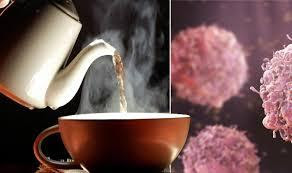
A study conducted by Yu Huang and Qiang Chen with the Third Hospital of Hebei Medical University, Shijiazhuang, China revealed that drinking tea may reduce the risk of colorectal cancer (CRC) by 24% but the estimate is uncertain and the actual effect on CRC risk can range from a reduction of 51%(RR,0.49) to an increase of 18%(RR, 1.18). The study has been published in BMC Gastroenterology.
A systematic review and meta-analysis of 15 studies (11 cohort, 3 case-control and 1 randomised controlled trial) with nearly 2.7 million participants was done. These studies were carried out between 1986 and 2015 in Asia, Europe, North America and Oceania. The participants drank either green tea or black tea. Tea consumption was dichotomised as less than 1 cup vs 1 cup or more cups. For data analysis, a random effects model was used.
Analysis suggested, tea drinking might be protective against CRC (RR, 0.33) in an American subgroup while data from the UK (RR, 1.45) and Italian (RR, 1.15) subgroups had opposite results. Green tea was shown to lower CRC risk (RR, 0.05) as compared to black tea. Limitations of this study include high level of heterogeneity in the original studies and also variations in the type and quantity of tea consumed. The quality and design of the studies too was not well considered wherein some studies did not account for potentially important variables like diet and alcohol use.
It can be said that this meta- analysis suggests that tea consumption may not be linked to the development of CRC and these relationships still need to be confirmed by additional well-designed large prospective studies and randomized clinical trials.
Source: Medscape Medical News

